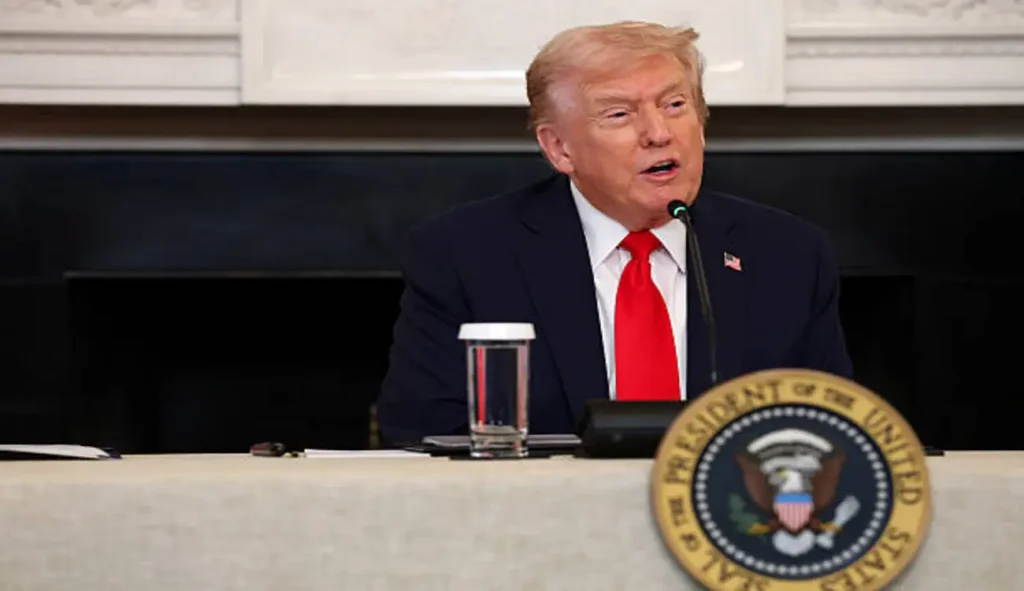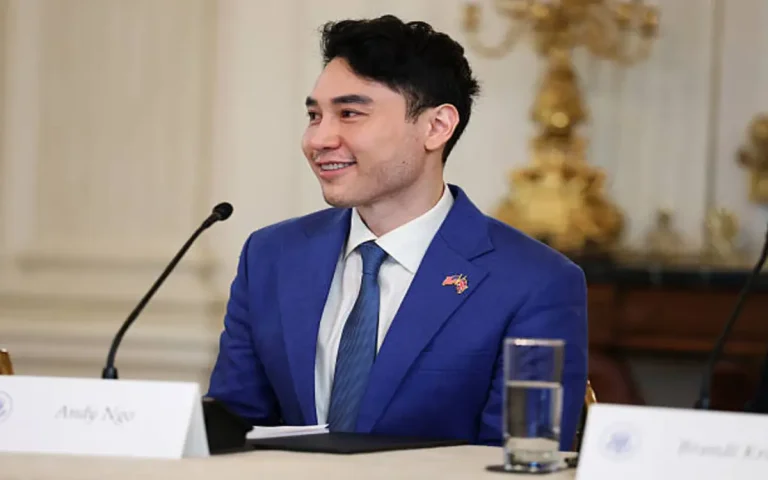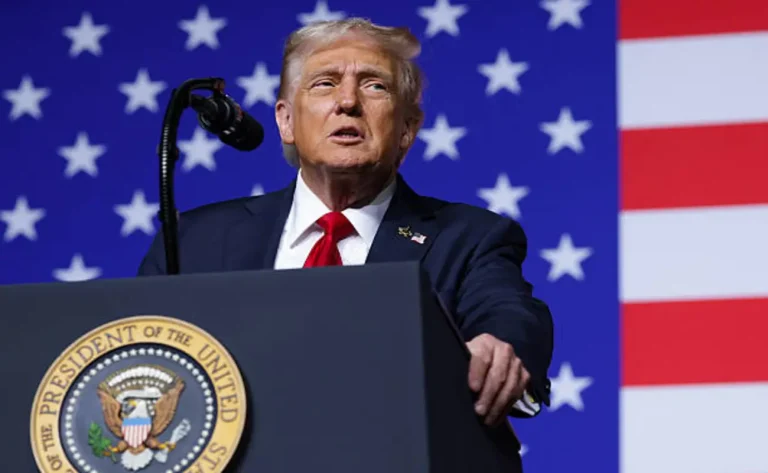
U.S. President Donald Trump delivers remarks during a White House roundtable on Antifa, October 08, 2025, in Washington, DC. Image credit/ Anna Moneymaker Getty Images
The meeting in the State Dining Room gathered federal security officials, journalists, and independent commentators, including right-wing social media figure Andy Ngo, to discuss the administration’s plans for national coordination.
Trump said the move was necessary to “restore order and protect American communities from anarchist extremism.”
White House Roundtable on Antifa
According to the White House, the session followed the signing of an executive order in late September labeling Antifa as “a domestic terrorist entity intent on violent insurrection.”
Senior advisers described the event as a “national security listening session” aimed at collecting testimonies from cities impacted by Antifa-related demonstrations.
Officials from the Department of Justice and the Department of Homeland Security briefed attendees on plans to identify, disrupt, and prosecute organized violence attributed to Antifa-affiliated groups.
Trump told participants that Antifa “has operated with impunity for too long,” adding that “federal law enforcement will now pursue every lead, every organizer, and every financial backer.”
Executive Order Expands Federal Powers
The executive order grants federal agencies authority to trace funding sources tied to Antifa-linked activities, enhancing inter-agency data sharing between the Treasury Department, the FBI, and Homeland Security.
Under the directive, the Department of Justice will coordinate with the Treasury’s Financial Crimes Enforcement Network to investigate suspected donors and logistical networks associated with the movement.
Officials said the order expands investigative powers similar to those used in countering international terrorism, though limited to domestic enforcement.
White House Press Secretary Kayleigh McEnany stated that the administration “will not allow violent anarchists to operate as political activists.”
Legal Challenges and Political Reactions
Legal scholars and civil rights organizations have questioned whether the executive branch has authority to apply terrorism designations to domestic political movements.
The American Civil Liberties Union warned that the order could infringe on First Amendment rights and blur distinctions between protest and criminal activity.
Democratic lawmakers called the measure politically motivated, citing concerns over freedom of assembly and expression.
House Homeland Security Committee member Bennie Thompson said the move “misrepresents protest movements as terrorism for political gain.”
However, Republican allies praised the decision, calling it a strong response to urban unrest and property destruction witnessed in 2020 and 2024.
Trump’s Broader Security Agenda
Analysts view the Antifa order as part of Trump’s broader campaign to centralize executive authority in domestic security matters.
Earlier this year, Trump also authorized a Justice Department task force on “Domestic Extremist Threats,” which he said would “protect American sovereignty from internal sabotage.”
At the roundtable, Trump told attendees, “We are not criminalizing dissent — we are protecting citizens from organized violence.”
He added, “This administration will not stand by as extremists burn cities and threaten police officers.”
Future Enforcement and Global Response
European security analysts noted that several governments, including the United Kingdom and Germany, have also increased monitoring of far-left networks following U.S. policy shifts.
U.S. officials said cooperation with international partners would continue through intelligence-sharing agreements under the Department of State’s counter-extremism framework.
Trump concluded the roundtable by directing agencies to issue progress reports on Antifa enforcement within 90 days.
No official transcript of the event was immediately released, though brief clips circulated online showing attendees applauding Trump’s declaration.
White House aides said additional policy measures could be introduced in coming weeks to further tighten domestic extremism laws.




